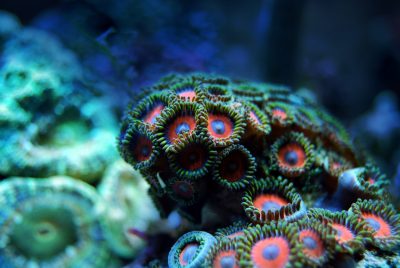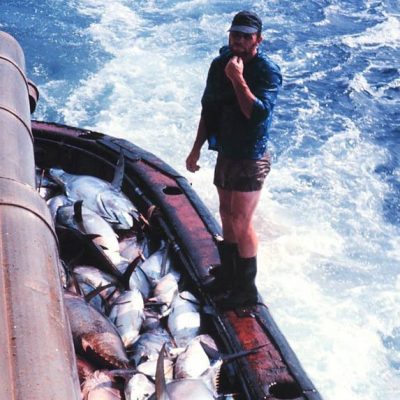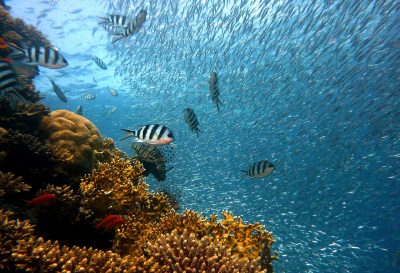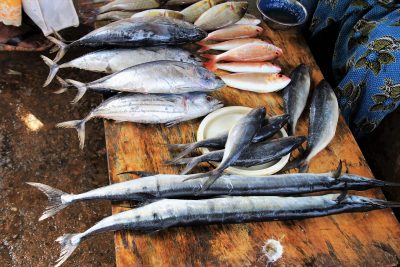In climate change talks and development goals, the tropical majority must be recognized and respected
We are in the UN Decade of Ocean Science and that means prioritizing diversity and inclusion in all decision-making processes
Climate change to drive increasing overlap between Pacific tuna fisheries and emerging deep-sea mining industry
Sourcing for car batteries and rare earth metals in the deep-sea — what does this mean for the tuna fish? IOF author takes a look into the possible consequences of mining into the deep, dark ocean.
Specific combinations of ocean protection, beneficial for ecology and socio-economic futures
MPAs must be carefully designed using ecosystem approaches that incorporate fully and partially protected areas without interfering with the right to fish for those whose livelihoods are dependent on access to marine areas and fish stock.
European fisheries under threat, climate change may impact on future catch
Without rapid adaptation or aggressive mitigation tactics, climate change is projected to induce profound negative consequences on future fisheries production in Europe.
FISH 699 – Ph.D. Dissertation
PhD dissertation
FISH 699 Credits: 0
Ph.D. candidates would normally register in section 100 (Term 1 & 2).
If you plan to complete your degree during Term 1, register in section 101 (Term 1). You will still have the option of registering in section 102 for Term 2 should it take longer than anticipated.
Terms 1, 2 & 3
FISH 549B – M.Sc. Thesis
Masters of Science thesis – 18 credit program
FISH 549B Credits: 18
If you are in the 12-credit thesis program, please sign up for FISH 549A.
If you are in the 18-credit thesis program, please sign up for FISH 549B.
M.Sc. candidates would normally register in section 100 (Term 1, 2 & 3).
If you plan to complete your degree during Term 1, register in section 101 (Term 1). You will still have the option of registering in section 102 for Term 2 should it take longer than anticipated.
Terms 1, 2, 3
FISH 549A – M.Sc. Thesis
Masters of Science thesis – 12 credit program
FISH 549A Credits: 12
If you are in the 12-credit thesis program, please sign up for FISH 549A.
If you are in the 18-credit thesis program, please sign up for FISH 549B.
M.Sc. candidates would normally register in section 100 (Term 1 & 2).
If you plan to complete your degree during Term 1, register in section 101 (Term 1). You will still have the option of registering in section 102 for Term 2 should it take longer than anticipated.
Terms 1, 2 & 3
FISH 548A – Directed Studies
Directed Studies in Oceans and Fisheries
FISH 548 Credits: 1-3
This directed studies course is offered mainly to Graduate Students in the Oceans and Fisheries (OCF) Masters and PhD programs. If a graduate student would like to have specialized instruction in a particular topic that is not offered in the UBC calendars, then the graduate student could make a request to their supervisor or some other IOF Faculty member for a FISH 548 directed studies course to be proposed and designed on the desired topic. The course could be library-based, lab-based or fieldwork-based. The instructor would need to provide a proposed course syllabus to one of the IOF graduate advisors for their approval at least one month prior to the term’s start date. The minimum credit is 1 to allow for a topic that could be covered in about two hours of directed study time per week. The maximum is set at 3 to place a reasonable maximum limit on the expected directed study time per week and credit hours attainable from a directed studies.
Any Faculty Member in the IOF could propose and offer FISH 548.
Term 1 & 2
FISH 520
Fisheries Conservation, Governance and Evaluation
FISH 520 Credits: 6
This core OCF graduate course focuses on surveying the literature and conceptual foundations for the ecology, economics, governance, and management of fisheries, common methods of analysis, and developing students’ interdisciplinary problem-solving skills. Particular emphasis is given to reviewing the evolution of aboriginal fisheries, conservation initiatives, fisheries ecosystem models, fisheries economics theory, methods and applications, fisheries stock assessment, human dimensions of conservation, governance, and management of fisheries. This course will provide students with a shared interdisciplinary understanding of the various components that contribute to fisheries conservation, governance and evaluation and skills essential to carrying out some of the most generic types of fisheries data and modeling analyses.
Term 1 & 2
FISH 510
Bayesian Decision Analysis for Fisheries Management
FISH 510 Credits: 3
Exploring the use of Bayesian decision analysis as a quantitative technique with which to inform decision makers about the extent to which alternative decision options may enable them to achieve their objectives, taking into account available information and uncertainty over factors that affect the outcomes of interest. Students will learn about the conceptual framework for Bayesian decision analysis, attitudes to risk and uncertainty, risk averse and other types of utility functions, minimax and maximin regret and other types of decision making criteria, the concept of expected value of perfect information, different approaches to assigning probabilities to alternative hypotheses, including Bayesian statistical methods, different software options for Bayesian decision analysis calculations, approaches to communicating results obtained from Bayesian decision analysis, the roles of decision analysis results in the making of decisions, and the advantages and limitations of Bayesian decision analysis as an approach to facilitate the use of science in resource management and policy decision making.
Not offered 2025/26



